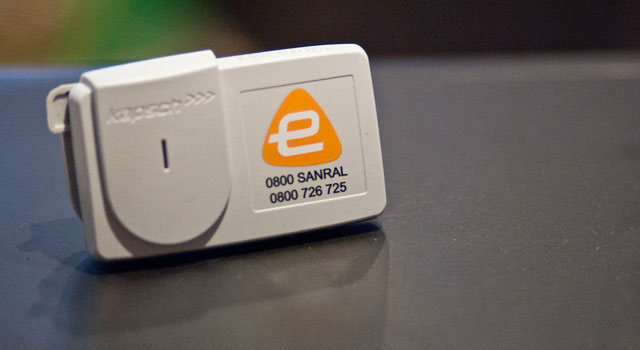
More than 100 000 South Africans heeded a warning to comment on a gazette that an anti-tolling group said could coerce protesting e-toll users into paying their fines.
With Wednesday being the deadline for comments on the transport department’s gazette that could affect e-toll users, the proponents and opponents of the system lashed out at each other.
In December, the Opposition to Urban Tolling Alliance (Outa) warned the public that changes to the Administrative Adjudication of Road Traffic Offences Act (Aarto) legislation could be a ploy to force road users to pay their e-toll bills and fines.
It said at the time that the gazette was an attempt to make it easier to include e-toll infringements into the adjudication process by the Road Traffic Infringement Agency (RTIA).
However, Vusi Mona, head of communications at roads agency Sanral, said on Wednesday that connecting the amendments in the gazette with e-tolling is a “misjudgement” and said “there is no attempt to introduce any new provisions”.
In a statement, Mona said failure to pay tolls has been an infringement under the Aarto legislation since 2008. “To leave the impression, as Outa does, that the regulatory changes to Aarto proposed in the government gazette on 7 December are new, is completely off the mark,” he said.
Sanral said in a statement that the only amendment to provisions relating to toll infringements is the removal of the demerit points for the failure to comply with a toll sign.
“It is a pity … [that Outa] negates this by its warning about a looming tax revolt. It completely misunderstands the proposed changes and its dire warnings are misplaced,” he said.
“This is a clear case where a little knowledge is a dangerous thing,” said Mona.
However, Outa chairman Wayne Duvenage said on Wednesday that Sanral is clearly missing the point and warned government to be wary of aligning itself with Sanral, which he says is “hijacking a legitimate process”.
“If you take an illegitimate process like e-tolls, which has been shunned by society, and align it with a legitimate vehicle licensing system, then you are asking for problems,” he said.
Outa created a Web portal to make it easier for the public to send comments to government and this allowed Outa to track how many people had submitted comments. “I have never heard of this many submissions,” he said. “I don’t know how government is going to sift through them all.”
Duvenage said a random selection of the submissions revealed the public had applied their minds to their comments and had not simply cut and pasted Outa’s response. “Sanral doesn’t understand what is going on here,” he said. “The public won’t be forced to pay for an illegitimate system.”
Sanral said in its statement that the RTIA proposes that Aarto notices should have room for notification of more than one infringement. “This is legal,” it said.
Should anybody wish to contest an infringement notice, photographic evidence on which this can be based is available, it added.
The other proposed amendment is regarding the extension of the period for service of an infringement notice from 40 to 90 days, explained Sanral. “This is proposed to allow for a more practical arrangement that will ensure that alleged infringers receive notices within the service period,” it said.
“To connect any of this with e-tolling is another misjudgment — a multiple charge notice may be used by any issuing authority for any infringements,” said Mona. “It is in fact simply a practical amendment that will save administrative and postal costs.”
There is also confusion about the need to include the name of the magisterial district where the infringement occurred, said Sanral. “This is not necessary in term of the Aarto Act, but is in terms of the Criminal Procedures Act.” — Fin24




